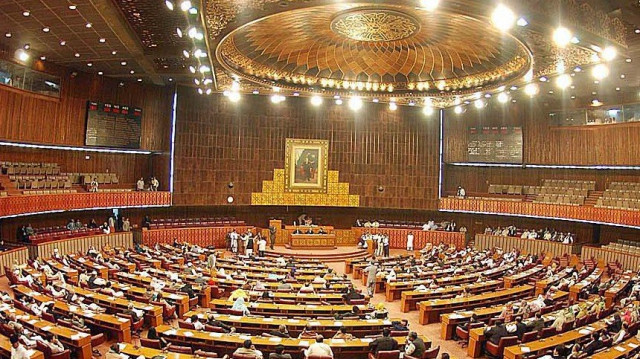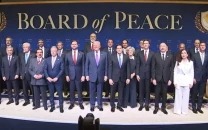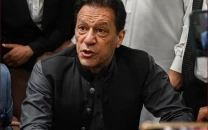Parliament rewind: NA moved closer to rare distinction
Could be first one to complete five years; elected a new PM.

Could be first one to complete five years; elected a new PM. PHOTO: APP/FILE
2012 proved an eventful parliamentary year after the 13th National Assembly elected a new prime minister, passed over a dozen bills, inducted new representatives and neared the milestone of being the first democratically elected government to complete its five year term.
After months of tumultuous political and legal wrangling, Yousaf Raza Gilani was replaced as Prime Minister by PPP leader Raja Pervaiz Ashraf during the 43rd session of the lower house held on June 22 last year.
Gilani was disqualified by the Supreme Court for contempt of court for not implementing its judgment on the National Reconciliation Ordinance (NRO) and refusing to write a letter to Swiss authorities seeking the reopening of graft cases against President Asif Ali Zardari.
During 2012, two heads of state were invited to address joint sessions of parliament. Turkish Prime Minister Recep Tayyip Erdogan addressed the joint session of the parliament on May 22. A similar session planned for Egyptian President Mohamed Mursi however, was cancelled.
The fifth parliamentary year of the lower house started legislative business with the passage of National Commission for Human Rights Act 2012 in May. During the year, the government introduced 23 bills in the lower house including the 23rd constitutional amendment aimed at increasing the number of minority seats in parliament.
Another 26 private member bills were tabled during the year as well.
Years of delicate deliberations by the standing committee on law, justice and parliamentary affairs collapsed in October when the government tabled a new accountability bill, placing a bar on reopening of graft cases older than 10 years.
Another bone of contention between the PPP and the PML-N, the Holder of Public Office (Accountability) Act, 2009 could not be passed during the December session due to concerns raised by allied parties.
The Investigation for Fair Trial Bill 2012, which was the last piece of legislative business conducted by the lower house, authorises the security services to tap phone calls and intercept private communications in order to catch terrorists.
Published in The Express Tribune, January 1st, 2013.



















COMMENTS
Comments are moderated and generally will be posted if they are on-topic and not abusive.
For more information, please see our Comments FAQ